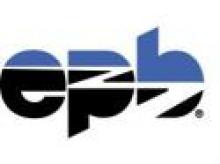Work for the Minnesota Department of Commerce, Apply by Jan. 23rd
If you're a regular visitor to MuniNetworks.org, you may also be someone ideally suited for a position we recently learned about with the Minnesota Department of Commerce. They're hiring a Telecommunications Analyst. The position application period is open until January 23, 2020, so now is the time to apply.
Check out the position posting here, where you can learn more about qualifications, salary, and benefits.
From the job summary:
This position performs a variety of tasks to fulfill the Department's statutory responsibilities with respect to the telecommunications marketplace. The telecommunications unit seeks to protect consumers from abusive tactics, and works to advance competition in a manner that is consistent with the public interest. The successful applicant will review new and existing telecommunications carrier petitions to determine compliance with statutory requirements and Minnesota rules. The position will investigate problems experienced by consumers, and competitors in the marketplace; draft reports for actions before the Minnesota Public Utilities Commission; and enforce statutes, rules and Commission orders.
Good luck and remember, the application deadline is January 23, 2020.



